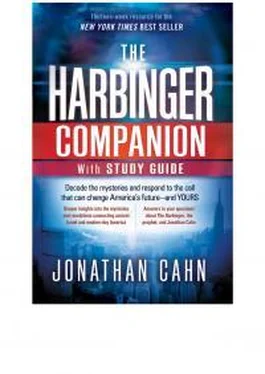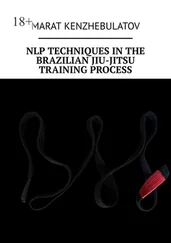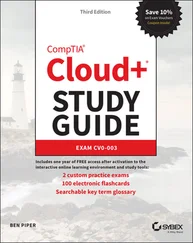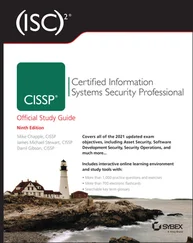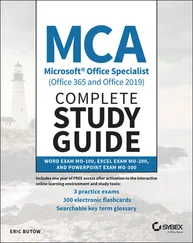The Harbingers in Cyberspace
One of the principles we’ve seen with the harbingers is that, one way or another, they become focal points. The tower at Ground Zero becomes the center of national attention. The hewn stone becomes the center of a ceremony. The fallen sycamore is put on display and commemorated in bronze. The erez tree becomes the center of a ceremony and is likewise made into a symbol. The vow as proclaimed by Edwards opens his speech and becomes the center point and source for the rest of it. The vow as proclaimed by Daschle becomes the pinnacle of his speech, a speech that presents the nation’s response to 9/11. In the case of the president’s vow, the same dynamics begin to operate.
Once the speech was delivered, one set of words began to emerge. Of the thousands of words contained in Obama’s speech, the words most often chosen by news services around the world were “We will rebuild.” From the New York Times to Al Jazeera , they chose as their headlines the central defiant proclamation of Isaiah 9:10.
The ancient dynamic now operated in cyberspace. If one was to type into one’s computer search engine the words “We will rebuild” before the speech, Isaiah 9:10 would appear on the screen in the first page of results. But as the American president spoke, his words began to replace the defiant words of America’s leaders; his vow began to take the place of the ancient one.
Below is a sample of some of the many headlines that spread across the world on the Internet and in print in the wake of the president’s speech:
The ancient vow that had once brought destruction to Israel had now become, in the sight of all the world, the vow of America.
WEEK 9 EXPLORE and APPLY
Read chapter 18 of The Harbinger .
Watch or listen to the accompanying resource The Three Witnesses DVD or CD from The Harbinger: The Full Revelation eight-disc album.
Read Deuteronomy 19:15; 2 Corinthians 13:1; Isaiah 9:10; John 11:47–53.
Explore
What do you think the reason is for the law of two and three witnesses to establish a matter of judgment?
How can you see this law applied to the realm of nations, for instance, with regard to the judgment of Israel and Judah?
The high priest Caiaphas is recorded in John 11 as prophesying unwittingly. He doesn’t realize what he’s saying. How is this true also of all three witnesses who speak the ancient vow in one form or another?
Caiaphas spoke a double entendre—he said something that also meant something else. He intended to say one thing, but in the spiritual realm he said something altogether different and infinitely more profound. How did each of the three witnesses also speak in two different realms, one realm unwittingly, saying something infinitely more profound?
What did each of them intend to do? And what did each of them do without intending it?
Politicians and speechwriters are especially careful to measure every word to make sure it has no unintended consequence. Why then is it especially striking, especially in the case of the first two, that such words could be proclaimed by these men?
The Book of John records that Caiaphas said what he said not of his own accord but by virtue of his office. He was the high priest that year. He represented the nation. How is this principle of office also true of the three who spoke these words?
What was the significance of the city in the case of all three witnesses, and the hill, building, and chamber, in the case of the first and third witness? Why is that particular building most significant?
How significant were the words or paraphrase of Isaiah 9:10 in each speech? Explain.
Which one of the three closed his speech with the words of the ancient vow?
Which one of the three opened his speech with the words of the vow?
Which one of the three told his hearers that the words of the vow speak to all Americans?
Which one of the three based his entire speech on the ancient vow of Isaiah 9:10?
Which one of the three told his hearers that he wanted every American to know the vow?
How many of the three proclaimed the vow to members of the United States Congress?
Which one of the three was speaking not of 9/11 but of the economic collapse? He said almost word for word what was said concerning 9/11 the day after the attack. What significance could there be in that?
Spiritual Truths
Why is it significant that leaders make such proclamations?
What does it mean that leaders who may not even know God can say such prophetic utterances? What does it say about God’s sovereignty?
What might be the significance of the fact that more than one of these vows were spoken in the same chamber, that of the House of Representatives, in a joint session of Congress?
What do you think the Lord could be saying in all this, the vow being proclaimed by three American leaders?
Mission to Apply This Week
Of the three witnesses, at least two knew they were quoting Scripture but had no idea what they were saying. The third didn’t even realize he was quoting Scripture. But as believers, we are called to both witness and speak the Word of God. And to be true witnesses, we must be true to the Word of God—not using it for our own purposes, not bending it to match our lives but rather being used of it and conforming our lives to match the Word of God.
Take an honest look. Are there areas in your life that are not matching up with areas in the Word of God? What are they? Make it your mission this week to take specific steps to match up, conform, and move your life to match up with the Word of God. Write these steps down as your mission for the week in the space provided.
Take time now to commit this to God and pray for His help and anointing.
Seal this commitment in prayer (individually, in small groups, as a class, or congregationally).
Prepare for next week (groups only): This week read, go over, and explore the next chapter, “The Mystery Ground.”
Write Down
1. Your thoughts, notes, and insights
2. What you believe the Lord is calling you to do
3. Your mission for the days ahead
Chapter 10
The MYSTERY GROUND
The Temple Mount
IN 586 BC calamity overtook the nation of Judah, and for the first time in its history, the Temple Mount lay in ruins. The Temple Mount was Israel’s consecration ground, the place of prayer and communion with God. It was the site on which King Solomon had led Israel in prayer for its future on the day the nation had assumed its completed form. So when judgment came, the calamity, the destruction, had returned to the ground of consecration. This study explores the dynamics of the mystery ground, the message it holds for America, and the call to return. In a previous study we looked at the First Harbinger, the breach. As we noted, when Israel’s ancient northern kingdom continued its centuries of apostasy in defiance of numerous warnings, God allowed a breach in its hedge of protection, letting the Assyrians launch an invasion of the land. A decade later, in 722 BC, when the northern kingdom failed to turn from its ways, God brought the Assyrians again, this time to destroy it and carry its people into exile. In 586 BC, following its own progression of apostasy, the southern kingdom, Judah, saw its own hedge of protection removed as Babylon destroyed the Temple in Jerusalem and exiled its people.
King Solomon and the Dedication
Built centuries earlier by King Solomon, the Temple Mount was the site of Israel’s consecration to God. The Temple was also the focal point of Israel’s national life. Its destruction revealed it as the focal point of judgment. When Solomon dedicated the Temple to God, he gathered the nation and its leaders to Jerusalem. Addressing the great throng, he recited God’s record of covenant faithfulness. Offering up prayers for future generations, he also foresaw the nation’s apostasy and its outcome, including the removal of God’s blessing and favor, the withdrawal of His protective hedge, and the coming of calamity. Solomon’s prayers were both prophetic and intercessory. His prayers foretold apostasy and resulting catastrophe and beseeched God for mercy and restoration for those generations yet to be born. After reciting in detail the tribulations, from famine and plagues to draughts and blight, that would come on Israel if they disobeyed God and refused to repent, Solomon prayed:
Читать дальше
